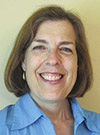When the going gets tough

While the controversies within the Catholic Church are real, the call to serve God in religious life is also real. New members of religious orders can be part of the church’s renewal. (William Pearce, Flickr)
If you ask several Catholic sisters, brothers, or priests about their “vocation story”—the story of how they came to religious life or ordination—you’ll likely hear at least a few accounts that involved anxiety over hot-button topics in the church. These are topics that sometimes emerge in the daily news, and they are frequently subjects that raise people’s blood pressure.
Like any other family, the Catholic family has its “issues.” Whether they are internal disagreements or external arguments, some controversies might be hard to avoid if you become a public representative of the faith. People in discernment can find themselves wrestling with their own sensibilities and sensitivities. Additionally it can even be hard to unravel anti-Christian prejudice from the way “hot topics” are presented in secular venues.
Even if you don’t take a stand on these controversies, they do impact each discerner. Each person discerning religious life will turn over questions in his or her heart and strive to find ways to reconcile their sense of calling with what may be thorny realities. Topics that have been under discussion in the Western church for the past few decades include:
- Sexual abuse in the church
- Women’s roles in Catholicism
- Catholicism and LGBTQ members
These three topics bring forth a host of cultural, theological, and ecclesial differences among Catholics, and few scholars and observers of the church expect them to disappear soon. For those in discernment, the point is not necessarily to have everything sorted out. Rather, it is to acknowledge the challenge of these issues and prepare to deal with the knotty questions that public ministers will inevitably field.
For instance, Sister Susan Francois, C.S.J.P. is a member of the Sisters of Joseph of Peace who was forced to deal with the first wave of sexual abuse crimes in the early 2000s as she considered becoming a sister. “Being a returned Catholic in light of the abuse crisis was tough enough, but here I was considering becoming a Catholic sister, a public figure in the church. I had to seriously consider if I could do this and still be a person of integrity,” wrote Francois in the HORIZON journal, a professional journal for vocation ministers.
Francois was deeply affected by the controversy of sexual abuse, but she sought out a spiritual director and eventually discerned her calling to religious life. “I realized that the Catholic Church is my home,” she said, and that it made more sense for her to face the questions with other “good-hearted people” than on her own.
Men considering religious life or diocesan priesthood may also feel tainted by clergy scandals not of their own making. Each man will have to grapple with his own sensibilities and learn what approach is right for him if and when the hot-button topics arise among his family members or friends.
Others, both men and women, looking at the possibility of being public leaders in the church may feel anxiety about church practices and church teaching regarding the role of women in the church. Public ministers will be called upon to defend or explain Catholicism to others. It helps to look deeply at the long and complex history of women’s leadership in the church and be aware of emerging changes, such as greater openness in recent years to women’s leadership in areas of the Vatican that were once closed to non-clerics.
Likewise, theology and practices regarding those who identify as LGBTQ is another area of intense scrutiny and debate in our society and within the church (the Roman Catholic Church as well in other Christian denominations). Those considering priesthood or religious life should prepare for a wide range of questions about their own sexual orientation and the church’s teachings on human sexuality.
Hold the tension, commit to integrity
Every age has its issues, anxieties, blind spots, and controversies. Christians frequently cleave to the notion to be “in the world but not of the world.” That’s always going to be difficult because it is hard to pick apart the threads of where the culture adheres to Christian values and where it departs from them.
Father Ronald Rolheiser, O.M.I. has written many times about the need for Christian disciples to “hold the tension” of controversies, conflicts, and pain. “Live in a tortured complexity! Love the world, love its pagan beauty, let it take your breath away, even as you root your heart in something deeper so that the realities of faith also take your breath away,” he writes in “Some guidelines for service” on ronrolheiser.com.
In fact, many vocation directors prefer candidates who don’t have ready answers for every dilemma, who notice the gray instead of only the black and white. The National Religious Vocation Conference promotes the idea that those entering religious life have an overall Christian maturity, free of excessive rigidity or ideological zealotry.
Amid disagreements and controversies, Catholics by and large do agree on one thing: the misuse of authority cannot and should not be tolerated or overlooked anymore. Those entering religious life need to commit to integrity and appropriate and ethical use of authority. The Catholic Church will be renewed and reinvigorated by its members exercising a servant-like (not kingly) model of leadership—be it as a sister, brother, priest, or lay leader.
Tips for discernment
Experts in religious life have a few tips for those in discernment who wrestle with the issues of our day.
1) Seek out good counsel. A trained spiritual director is an excellent aide to anyone in vocation discernment, and the questions that arise around controversial issues are good ones to bring to the discussion. If you’re looking at a particular religious community, talk to the vocation director and see what she or he says about the way members approach a given topic and how or whether these issues affect their ministry. Your diocesan office for Christian education and development may be able to refer you to a trained spiritual director.
2) Read and listen widely. While it is tempting to back up our own ideas by strictly reading or listening to sources that validate ourselves, it also pays to get a different perspective sometimes. A good starting point might be to learn from Catholics immediately affected by a particular controversy. The discussion is forced to stay real and not remain in a strictly theoretical realm.
3) Follow the classic suggestions for vocation discernment. VISION has published a great many articles on discernment. Go to vocationnetwork.org to search our online index.
If you decide to enter a religious community, you will have a lifetime to grow in the faith. You will have companions on that journey, and your preparation for religious life should provide you with the education and formation to wrestle well with controversies, and, even more important, develop into a committed and compassionate follower of Christ.
Related article: VocationNetwork.org, “Why consider a church vocation in times like these?”
Tags
Related
- Tune into your prayer life
- Embody your decisions
- My portable prayer life
- Unravel the mystery of your call
- Religious life today (infographic)
- Religious vocation or family?
- Heaven help you in your discernment
- VOCATION PRAYERS
- Call within a call: Your vocation and a career
- 8 questions and answers to your prayers Read More
Most Viewed
- Find your spirituality type quiz
- FAQs: Frequently asked questions about vocations
- Celibacy quiz: Can you live a celibate life?
- Resources for older discerners or those with physical and developmental differences
- About Vocation Network and VISION Guide


